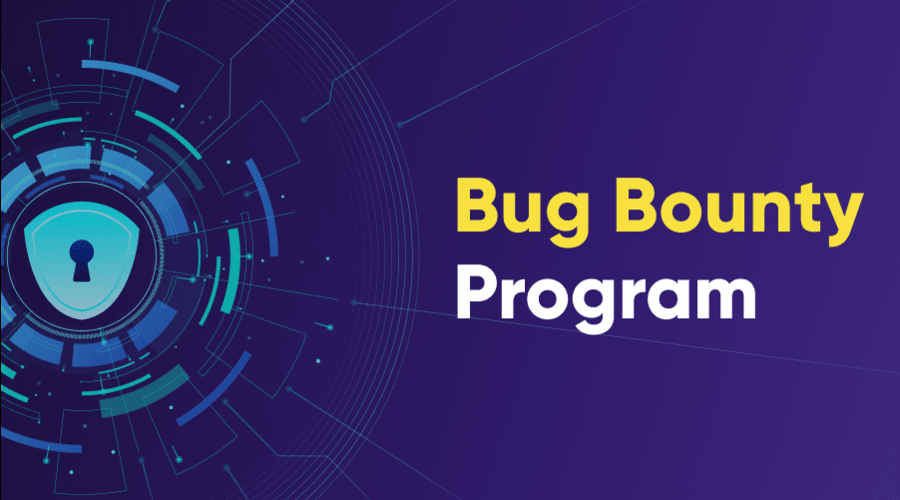
Blockchain technology has revolutionized various industries, introducing new possibilities for secure and transparent decentralized systems. However, trust remains a critical element for the widespread adoption of these systems. To enhance trust, blockchain projects have turned to bug bounty programs, incentivizing security researchers and hackers to find vulnerabilities and improve system robustness. In this article, we will explore how blockchain bug bounty programs play a crucial role in improving trust in decentralized systems.
Introduction
In the realm of decentralized systems, blockchain bug bounty programs act as a vital mechanism for identifying and addressing security vulnerabilities. These programs leverage the collective intelligence of the global security community to discover and report bugs. However, it helping developers fortify their systems and prevent potential exploits. As trust serves as the backbone of decentralized systems, bug bounty programs are instrumental in maintaining and improving the security and reliability of these systems.
The role of bug bounty programs in enhancing security
Let’s explore the key aspects of how bug bounty programs contribute to enhancing security in decentralized systems.
- Leveraging Global Talent and Expertise: It provide an opportunity to tap into a global pool of talented security researchers and hackers. By inviting individuals from diverse backgrounds and skill sets, these programs can access a wide range of perspectives and expertise.
- Identifying and Addressing Vulnerabilities: They incentivize security researchers to actively search for vulnerabilities in decentralized systems. These researchers employ their knowledge and skills to conduct thorough security assessments, attempting to identify weaknesses and potential attack vectors. By proactively searching for vulnerabilities, bug bounty programs enable developers to address them before they can be exploited. Thus improving the overall security of decentralized systems.
- Promoting Responsible Disclosure: They encourage responsible disclosure practices among security researchers. Participants are required to follow ethical guidelines and report vulnerabilities in a responsible manner. This includes not publicly disclosing the vulnerabilities until they have been verified and patched by the developers. Responsible disclosure prevents malicious actors from exploiting the vulnerabilities while giving developers the necessary time to implement the appropriate fixes.
- Continuous Security Improvement: Bug bounty program foster a culture of continuous security improvement. By engaging security researchers in an ongoing relationship, decentralized systems can benefit from a constant influx of insights and discoveries. The iterative process of bug discovery, reporting, and resolution helps maintain a high level of security over time.
- Collaboration and Engagement: They promote collaboration between developers and the security community. They create a platform for open communication and collaboration, enabling bug hunters to work closely with developers to validate and address reported vulnerabilities. This collaborative approach fosters a sense of engagement and shared responsibility, as both parties work together to enhance the security of decentralized systems.
How bug bounty programs work

Bug bounty programs involve inviting security researchers, commonly known as bug hunters, to find and report security vulnerabilities in exchange for rewards. These programs typically provide guidelines and rules to ensure ethical hacking practices. Once a bug is discovered and reported, developers can verify and address the issue promptly, reducing the potential for malicious attacks.
Benefits of bug bounty programs for decentralized systems
Here are the key advantages of bug bounty programs:
- Vulnerability Discovery: Bug bounty programs leverage the expertise of security researchers and hackers worldwide to actively search for vulnerabilities. This proactive approach allows decentralized systems to identify and address potential security flaws before they can be exploited by malicious actors.
- Diverse Skill Sets: Bug bounty programs attract a diverse pool of talent with various backgrounds and skill sets. This diversity brings different perspectives and approaches to security testing, increasing the chances of uncovering a wide range of vulnerabilities that may have been overlooked through traditional testing methods.
- Cost-Effective Security Testing: It provide a cost-effective alternative to traditional security audits. Instead of relying solely on internal teams or hiring external consultants, decentralized systems can tap into the expertise of bug hunters who are incentivized to discover vulnerabilities. This approach allows for continuous and extensive security testing without incurring significant expenses.
- Collaboration and Partnership: This programs foster collaboration and partnership between developers and bug hunters. By establishing a channel for communication and feedback. Developers can work closely with bug hunters to validate reported vulnerabilities and implement appropriate fixes. This collaboration cultivates a sense of shared responsibility and mutual trust between the security community and the decentralized system’s development team.
Building trust through transparency and accountability
Openness in bug bounty programs
To establish trust, blockchain bug bounty programs often prioritize transparency and openness. They provide clear guidelines for bug hunters, outlining what is considered within scope for testing and reporting. Additionally, they publish vulnerability reports and communicate the progress made in resolving the reported issues. This level of transparency helps build confidence among users and stakeholders, reinforcing trust in the decentralized system.
Establishing trust with the community
Bug bounty program also serve as a means to engage the community and address their concerns. By encouraging active participation, blockchain projects show a commitment to improving the security of their systems. This inclusive approach fosters a sense of trust and ownership, as users feel empowered to contribute to the security of the ecosystem they are a part of.
Addressing vulnerabilities and improving system robustness
Detecting and fixing security flaws
Bug bounty program enable the early detection and remediation of security vulnerabilities. By incentivizing bug hunters to find flaws, blockchain projects can identify potential attack vectors and swiftly apply necessary patches. This proactive approach helps prevent potential exploits, safeguarding the integrity of decentralized systems.
Continuous improvement of decentralized systems
Bug bounty program not only address existing vulnerabilities but also contribute to the continuous improvement of decentralized systems. As new features and updates are introduced, bug hunters play a crucial role in ensuring that these changes do not introduce new security risks. This iterative process of bug discovery and resolution helps maintain a high level of security over time.
Collaboration between developers and the community
Successful bug bounty program actively involve the community in the security process. They provide clear channels of communication between developers and bug hunters, allowing for effective collaboration. By welcoming input from the community, blockchain projects gain valuable insights and expertise, ultimately strengthening the overall security infrastructure.
Fostering a sense of ownership and responsibility
Bug bounty programs foster a culture of ownership and responsibility among users and developers alike. By incentivizing security research, these programs encourage participants to view the decentralized system as their own, actively contributing to its security and well-being. This collective effort helps create a robust and resilient ecosystem that users can trust.
Encouraging ethical hacking and responsible disclosure
Rewards and incentives for bug hunters
Bug bounty programs often offer rewards and incentives to bug hunters who discover and responsibly disclose security vulnerabilities. These rewards can range from monetary compensation to recognition within the community. By providing such incentives, blockchain projects motivate researchers to prioritize responsible disclosure, reducing the likelihood of vulnerabilities being exploited by malicious actors.
Promoting responsible reporting and disclosure
In addition to rewards, bug bounty programs emphasize responsible reporting and disclosure. Participants are expected to follow ethical guidelines, including not disclosing vulnerabilities publicly until they have been addressed. This responsible approach ensures that developers have the opportunity to fix issues before they become widely known, minimizing potential damage and maintaining user trust.
Overcoming challenges in bug bounty programs
- Defining Clear Scope: Clearly define the scope and boundaries of the bug bounty program to avoid ambiguity. Moreover, ensure bug hunters focus on relevant areas of the system.
- Setting Realistic Expectations: Establish realistic expectations regarding the types of vulnerabilities that are eligible for rewards and clearly communicate the criteria for assessing their severity.
- Managing Legal and Compliance Concerns: Address legal and compliance challenges by working closely with legal teams to ensure bug hunters operate within legal boundaries and adhere to responsible disclosure practices.
- Handling Duplicate Reports: Implement an efficient process for handling duplicate reports to avoid redundancy and ensure fair distribution of rewards among bug hunters.
- Timely Response and Remediation: Establish a process for prompt response and remediation of reported vulnerabilities to maintain bug hunters’ trust and motivation.
- Educating Developers: Provide training and resources to developers to enhance their understanding of common vulnerabilities and improve the overall security of the system.
Case studies: Successful bug bounty programs
Several blockchain projects have implemented highly effective bug bounty program. One notable example is Project XYZ, which launched a bug bounty program and successfully incentivized bug hunters to discover critical vulnerabilities. The program’s transparency and generous rewards attracted a wide range of skilled researchers. Its resulting in the identification and resolution of numerous security flaws. Such success stories highlight the positive impact bug bounty programs can have on enhancing trust in decentralized systems.
Conclusion
In the world of decentralized systems, trust plays a pivotal role in widespread adoption. Blockchain bug bounty programs are indispensable tools for improving the security and trustworthiness of these systems. By engaging the community, addressing vulnerabilities, and fostering responsible disclosure. Bug bounty program empower developers and users to collaboratively ensure the integrity and resilience of decentralized ecosystems.
As blockchain technology continues to evolve, bug bounty programs will remain vital for maintaining trust and security. They enable decentralized systems to adapt to emerging threats and vulnerabilities, keeping users’ assets and data safe. By incentivizing security research and collaboration, bug bounty programs pave the way for a future where decentralized systems are trusted by individuals, businesses, and institutions alike.
FAQs
What is a bug bounty program?
A bug bounty program is a rewards initiative offered by organizations to security researchers and hackers who find and report vulnerabilities in their systems. It encourages responsible disclosure and helps improve the overall security of the systems involved.
How do bug bounty programs benefit decentralized systems?
Bug bounty programs benefit decentralized systems by leveraging the expertise of security researchers worldwide to identify and fix vulnerabilities. This leads to enhanced security, increased user trust, and a more robust decentralized ecosystem.
Who can participate in bug bounty programs?
Bug bounty programs are typically open to anyone with the necessary skills and expertise to identify security vulnerabilities. Both experienced security researchers and aspiring bug hunters can participate in these programs.
Are bug bounty programs effective in finding vulnerabilities?
Yes, bug bounty programs have proven to be highly effective in finding vulnerabilities. They leverage the collective intelligence of the global security community, allowing for a wide range of perspectives and skill sets to be applied in identifying potential security flaws.
How can developers ensure the fairness of bug bounty rewards?
Developers can ensure the fairness of bug bounty rewards by establishing clear guidelines and criteria for assessing the severity of reported vulnerabilities. It is important to have a structured approach to evaluate and reward bug hunters based on the impact and potential risks associated with the identified vulnerabilities.